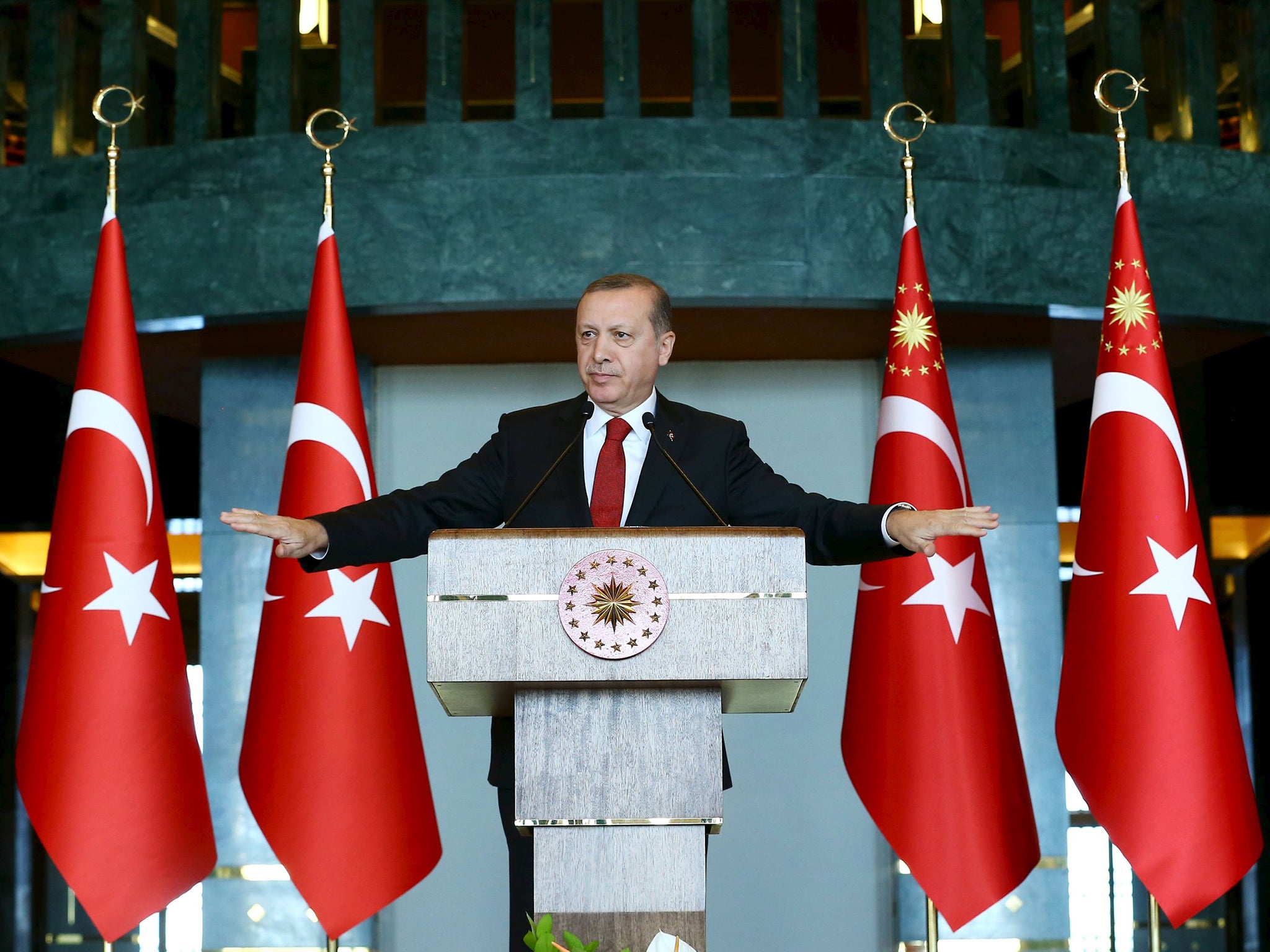Turkey has been put out in the cold by the US and Russia
Despite Erdoğan’s attemps to castrate the growing political influence of the Kurds, his blundering diplomacy is having the opposite effect

The underlying tensions between the US and its supposed ally Turkey have once again surfaced after a visit by President Obama’s special envoy, Brett McGurk, to the Kurdish PYD (Democratic Union Party) in Kobane in northern Syria.
It was the heroic defence of Kobane by the PYD’s military wing, the YPG (People’s Defence Units), against Isis which won international admiration.
However, Turkey put a different gloss on the visit, and as President Erdoğan angrily remarked: “Are you on our side or on the side of the terrorist organisations?” Turkey has branded the PYD a terrorist organisation together with its sister organisation, the PKK (Kurdistan Workers’ Party), which is outlawed in Turkey. While agreeing with Turkey on the status of the PKK, the US clearly differs when it comes to the PYD, as it considers Kurdish fighters to have been some of the most successful in going after Isis inside Syria.
Now that Erdoğan has reignited the war against the PKK in Turkey as a means of gaining popular support, he is clearly afraid that growing international support for Syria’s Kurds, for example, from the US and Russia will reinforce the demands of Turkey’s Kurds for regional autonomy.
The PYD has wrested control of much of northern Syria along the Turkish border from Isis and has established three autonomous cantons between the Tigris, bordering on Iraq, and the Euphrates.
Although Erdoğan has declared crossing to the west of the Euphrates to be “a red line” for Turkey, the YPG has already done so, and threatens to close the 98-kilometer gap along the Turkish border to be able to link up with Afrin, a fourth Kurdish canton in northwest Syria.
This gap is of strategic importance for Turkey, because it is, as President Obama said at a news conference at the OECD’s headquarters in Paris in December, “98 kilometers that are still used as a transit point for foreign fighters, ISIL shipping out fuel for sale that helps finance their terrorist activities.”
The US has called on Turkey to close the border but it has refused, so now Syria’s Kurds are going to do the job. Turkey has since 2012 tried to lure the US into supporting its plans to replace Assad with the siren call of establishing a safe zone for Syrian refugees together with a no-fly zone in the same area. This would, in effect, block the attempts by the PYD to establish a Kurdish corridor along the Turkish border, which has been Turkey’s main intention.
Seen in this context, Turkey’s shooting down a Russian Su-24 bomber on November 24 was a strategic blunder. The Russian response included the deployment to Syria of the advanced S-400 air defence missile system, and after a second alleged violation of Turkey’s airspace at the end of January Erdoğan warned Russia of “consequences”. Russia’s response has been to send four Su-35S fighter aircraft to the Khmeimim airbase in Latakia province.
Last September General Philip Breedlove, NATO’s supreme allied commander for Europe, observed that the military infrastructure Russia had already installed in Syria was a de facto no-fly zone.
President Erdoğan's plans to marginalize the Kurds’ political influence both in Turkey and Syria seem set to backfire, and the Syrian Kurds have just opened their first foreign representation in Moscow. Russia is also seeking to include them when the stalled peace talks begin in Geneva.
Erdoğan has now declared Turkey’s patience to be soon exhausted and that it could be forced to intervene in Syria.
Russian foreign minister Sergei Lavrov believes that the US-led coalition will prevent Turkey from realizing “such crazy plans”, but both Russia and the US are dealing with a leader whose behaviour, like that of Muammar Gaddafi, is becoming increasingly erratic.
Robert Ellis is a commentator on Turkish affairs in the Danish and international press.
Join our commenting forum
Join thought-provoking conversations, follow other Independent readers and see their replies
Comments
Bookmark popover
Removed from bookmarks